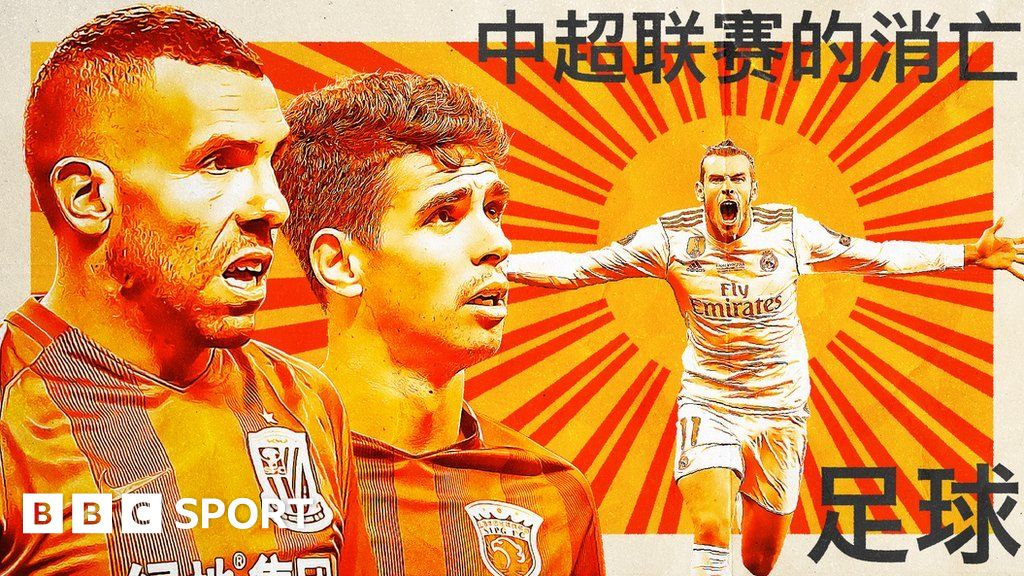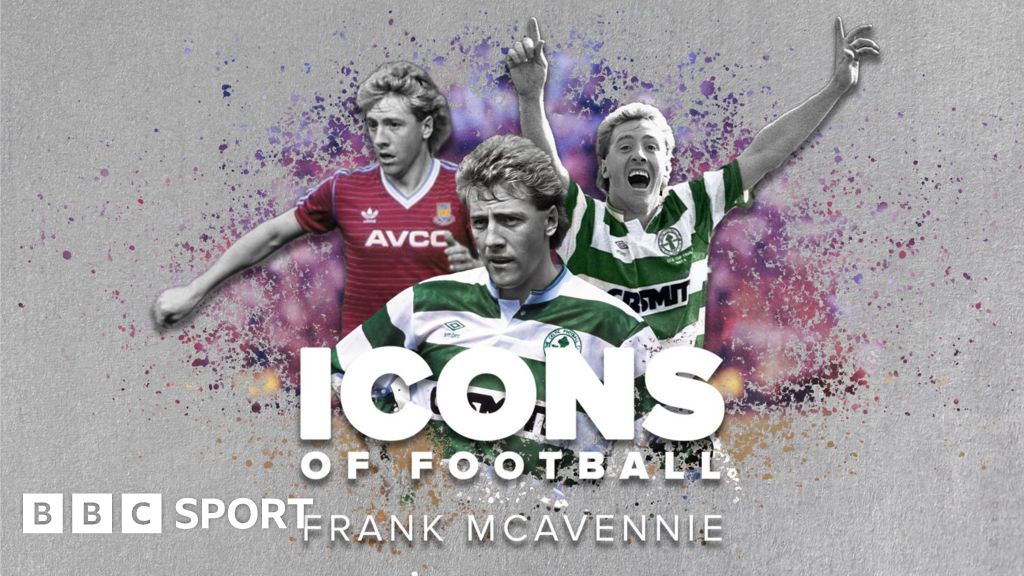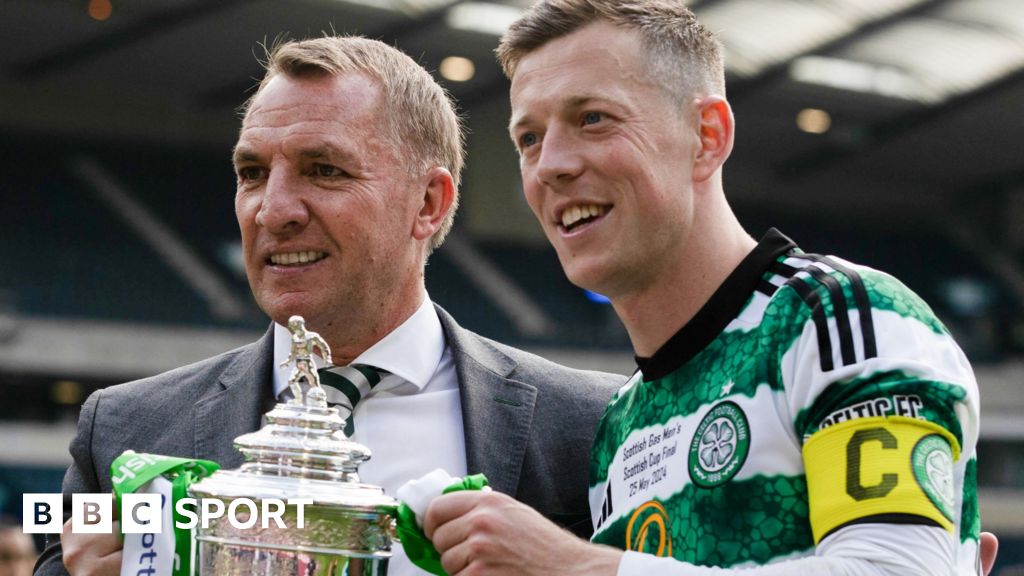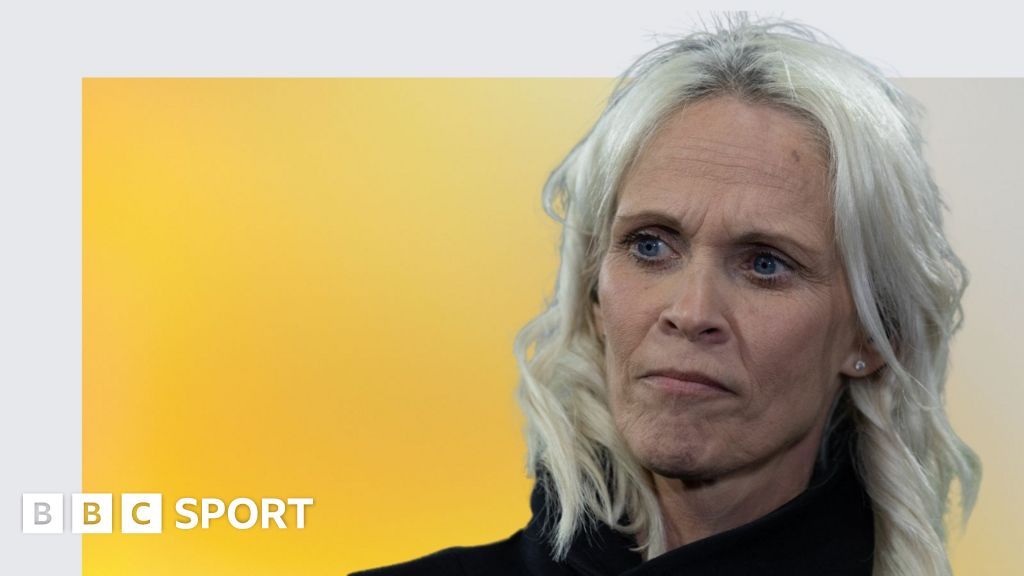
Chinese Super League: From bidding for Bale to selling the team bus
Bosnia-Herzegovina defender Samir Memisevic played for Hebei FC from February 2020 - but by his second season at the club, could tell there were issues behind the scenes.
"The second season, I thought that something was wrong," he told the BBC.
"After a few months, financial problems started. Then they had a big problem with the Chinese players - they didn't pay them for a lot of months and I was sure that at the end of that year Hebei would not exist any more."
Memisevic received and accepted an offer to go on loan to Beijing Guoan, one of the top clubs in the league.
Hebei, who had signed Lavezzi and former Premier League regulars Javier Mascherano and Gervinho during the CSL's boom times, scrapped their youth teams in a desperate bid to survive.
Some employees, furloughed without pay for months, offered to work for free as the club,, external owned by a debt-ridden real estate company, struggled to pay its utility bills.
It was all in vain though. Earlier this year, Hebei disbanded.
"I just feel so sorry for Hebei and what happened because they were one of the biggest teams with loads of big names and money," said Memisevic, who now plays for Al-Nasr in Dubai.
"Now it's just disappeared.
"It's really sad but it's been a thing at a lot of Chinese clubs. I've seen that Guangzhou and Wuhan are also disappearing. It's just really sad.
"I hope that Chinese football will get better because they put a lot of money into it. But I don't think it will be the same like before."
For John Hassett, the Chinese Super League will not be the same without his favourite team, Guangzhou City. The club, which has been managed by Eriksson and former Arsenal and Rangers star Giovanni van Bronckhorst in the past, also disbanded in March.
Every home game, Hassett looked forward to meeting fellow fans and joining them to cheer on the team.
"For lots of people, the social side was as important as the football," he told the BBC.
"We had this tiny little shop outside the ground, so we'd drink there before and after the game. It had also become the haunt of the local Chinese fan group after the game. It became quite a spot.
"We were all gutted. We did a little wake for the club at our beer shop after it closed down. We met up with a couple of other groups and had a beer outside the stadium. It was good fun.
"Part of the problem is that none of the clubs had set themselves up to make money.
"Tickets are very cheap. Our season ticket was £50 or £60. Some of the student groups were buying tickets cheaper than that. Most people don't buy the official shirts, they got them outside the stadium for £3.
"Revenue generation for clubs is the biggest problem the Super League will have. As the economy tightens, where does the money come from?"
Late last year, as the countdown to reopening stadiums to fans began, another question was being asked; where has the money gone?
A corruption scandal spread through the highest offices of the domestic game.
Former Everton midfielder and ex-head coach of China's men's team, Li Tie, was investigated for "serious violations of the law", with charges of bribery brought in August., external
Chen Xuyuan, the Chinese Football Association's former chairman, is facing similar accusations, external while South Korea midfielder Son Jun-ho, who played for Shandong Taishan, has been detained since May on suspicion of accepting bribes., external
Now, only a small number of foreign players remain in the league. Those currently playing in China, both local and foreign players, did not respond to interview requests from the BBC.
But despite the league's problems, there is still a demand for domestic football.
When tickets for Beijing Guoan's first match back in front of a crowd went on sale in April, they sold out within five minutes.





